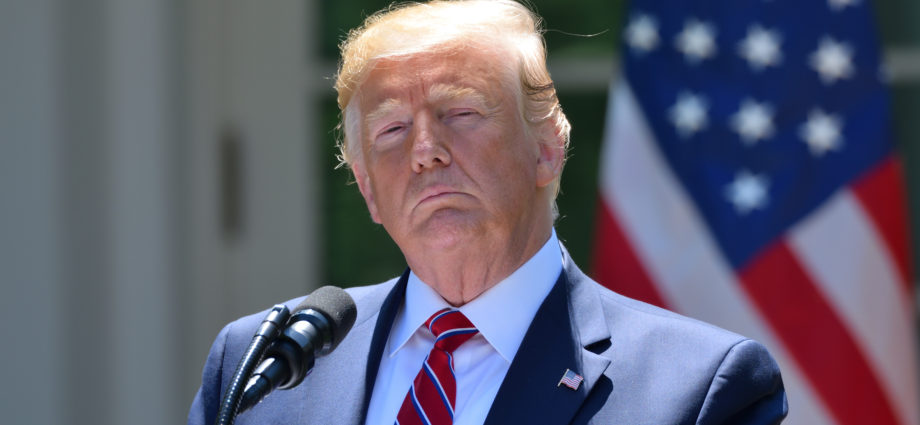
Shaun Narine, St. Thomas University (Canada)
March 21, 2024
Many observers of American politics are understandably terrified at the prospect of Donald Trump being re-elected president of the United States in November.
The U.S. is already showing signs of a failed democracy. Its government and politics are often dysfunctional and plagued with corruption.
A Trump victory would raise fears of a new level of decline into fascist authoritarianism. However, a second Trump presidency would not necessarily implement a foreign policy any more destructive than what is normal for the U.S.
Violence part of U.S. foreign policy
Since the start of the 21st century, the U.S. has unleashed enormous violence and instability on the global stage. This is a feature of American foreign policy, regardless of who’s president.
In 2001, in response to the 9/11 terrorist attacks, the U.S. launched its “war on terror.” It invaded and occupied Afghanistan, then illegally invaded and occupied Iraq.
These actions caused the deaths of 4.6 million people over the next 20 years, destabilized the Middle East and caused massive refugee migrations.
In 2007-2008, the under-regulated U.S. economy caused a global financial crisis. The associated political and economic fallout continues to resonate.
In 2011, the U.S. and its NATO allies intervened in Libya, collapsing that state, destabilizing northern Africa and creating more refugees.
The U.S. tried to consolidate its dominance in Europe by expanding NATO, despite Russia warning against this for decades. This strategy played a role in the Russia-Ukraine war in 2014 and the full-scale Russian invasion of Ukraine in 2022.
President Joe Biden’s administration has been accused both of helping to provoke the war in the hopes of permanently weakening Russia and of resisting peace negotiations.
Today, Ukraine appears to stand on the verge of defeat and territorial division, and U.S. Congress seems set to abandon it.
Fuelling global tensions
The U.S. has provoked tensions with China by reneging on American commitments under the Taiwan Relations Act (1979) to refrain from having official relations or an “alliance” with Taiwan. The U.S. has also been accused of encouraging conflict in the South China Sea as it has surrounded China with hundreds of military bases.
Israel’s assault on Gaza is partly the culmination of decades of misguided U.S. foreign policy. Unconditional American support of Israel has helped enable the country’s degeneration into what human rights organizations have called apartheid, as the state has built illegal settlements on Palestinian land and violently suppressed Palestinian self-determination.
As Israel is accused of using starvation as a weapon against 2.3 million Palestinians in Gaza, half of them children, the U.S. is fully complicit in the Israeli war crimes and for facilitating a conflict that is further inflaming a critically important region.
Israel is of little to no strategic value to the U.S. American politicians contend that its overwhelming support for Israel reflects moral and cultural ties, but it’s mainly driven by domestic politics.
That suggests that for domestic political reasons, the U.S. has endangered global stability and supported atrocities.
Biden/Trump foreign policy
The Biden administration has continued many of the foreign policy initiatives it inherited from Trump.
Biden doubled down on Trump’s economic, technological and political war against China.
He reinforced Trump’s trade protectionism and left the World Trade Organization hobbled.
He built on Trump’s “Abraham Accords,” an initiative to convince Arab states to normalize their relations with Israel without a resolution to the Palestine question.
The Biden administration’s efforts to push normalization between Saudi Arabia and Israel is considered part of Hamas’s motivation to attack Israel on Oct. 7, 2023.
None of this inspires confidence in U.S. “global leadership.”
Biden and Trump share the same goal: permanent American global domination. They only differ in how to achieve this.
Trump believes the U.S. can use economic and military might to coerce the world into acquiescing to American desires, regardless of the costs to everyone else and without the U.S. assuming any obligations to others.
In office, Trump tried to present himself as “anti-war.” But his inclination to use of threats and violence reflected established American behaviour.
Biden follows a more diplomatic strategy that tries to control international institutions and convince key states their interests are best served by accepting and co-operating with American domination. However, Biden readily resorts to economic and military coercion, too.
Reality check?
The silver lining to a Trump presidency is that it might force U.S. allies to confront reality.
American allies convinced themselves that the Biden presidency was a return to normalcy, but they’re still accepting and supporting American global violence. They’re also wilfully ignoring the ongoing American political decay that could not be masked by Biden’s defeat of Trump in 2020.
Trump is a symptom of American political dysfunction, not a cause. Even if he loses in November, the Republican Party will continue its slide towards fascism and American politics will remain toxic.
A second Trump presidency may convince American allies that the U.S. is unreliable and inconsistent. It may undermine the mostly western coalition that has dominated and damaged the world so profoundly.
If Trump returns, traditional U.S. allies may recognize that their interests lie in reconsidering their relations with the U.S.
For American neighbours Canada and Mexico, a Trump presidency is only bad news. They’ll have to somehow protect themselves from creeping U.S. fascism. For the rest of the world, it may herald the start of a dynamic multipolar order.
Shaun Narine, Professor of International Relations and Political Science, St. Thomas University (Canada)
Subscribe to our newsletter.
This article is republished from The Conversation under a Creative Commons license. Read the original article.


